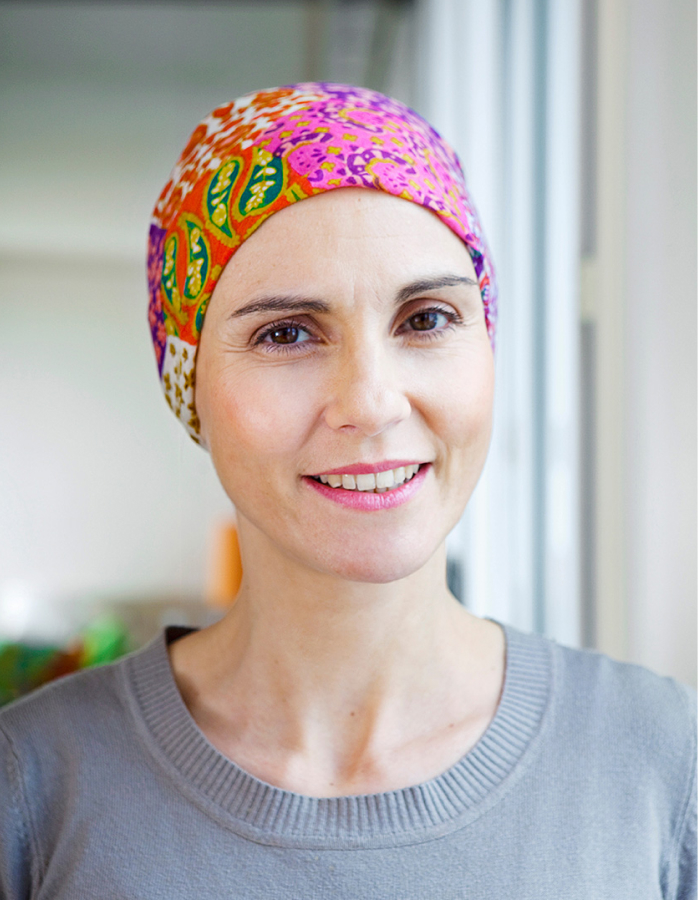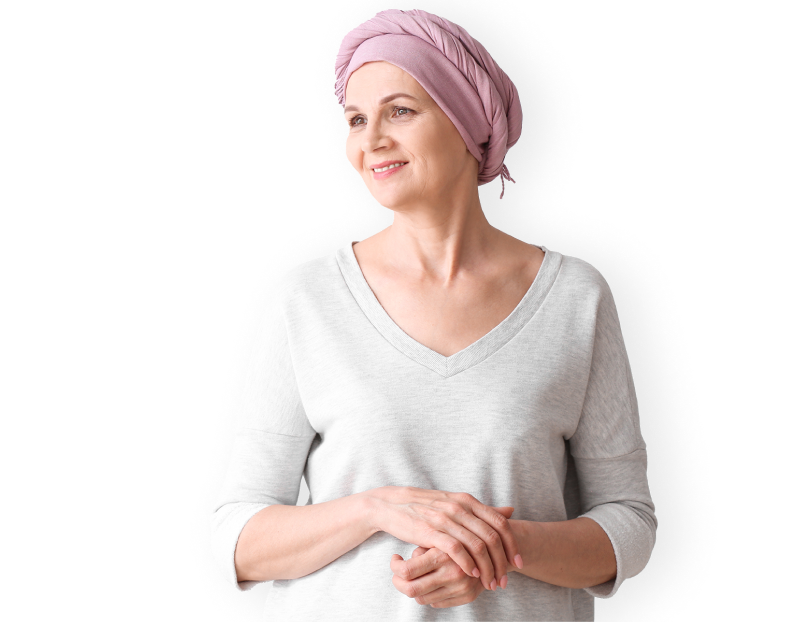Our team supports you
Discover how we can help youAt the Larivière & Massicotte pharmacy, we’re here to support you and your loved ones, working with your doctors, nurses, and pharmacists to ensure you receive the best possible pharmacological treatment. We manage your medications so you can focus on fighting the disease.
We’re here for you.

What is cancer?
Cancer is a disease in which cells grow abnormally and uncontrollably. Unlike normal cells, they ignore the body’s signals to stop dividing and eventually invade surrounding tissues, resulting in a mass called a tumour. Cancers can develop in almost every organ and tissue of the body, and spread to other parts of the body (metastasis).
How are cancers diagnosed?
To diagnose cancer, oncologists begin by evaluating symptoms, then proceed with a physical examination, including blood tests and scans. In most cases, however, only a biopsy, or direct observation of the cells, can confirm whether or not they are cancerous. This stage, where we determine the size of the tumour and the extent to which it has spread throughout the body, is the primary factor guiding the choice of treatment.
What are the symptoms of cancer?
Cancer symptoms vary greatly, and depend on the type of cancer and its development stage. Pain can occur when cancer cells invade or press on surrounding cells. Organs affected by cancer, such as the liver or pancreas, may also lose their ability to function properly. In some cases, symptoms known as paraneoplastic syndromes are not caused by the tumour itself, but by chemicals or hormones secreted by the tumour. These can trigger an autoimmune response in which the body produces antibodies targeting its own cells, disrupting normal organ function or destroying healthy cells. Some complications can be potentially life-threatening, such as fluid accumulating in the membranes around the heart or lungs, impairing breathing. Cancer can also clog the veins that carry blood from the upper organs back to the heart, or strain the spinal column or attached nerves, causing pain or loss of nerve function.
It’s important to be aware of the different symptoms that can affect you and how they evolve. If you’re not sure, talk to a healthcare professional. It’s worth noting that most cancers develop without us ever feeling any symptoms, hence the importance of cancer-screening campaigns to detect them early.
How is cancer treated?
Different treatments are available to eradicate cancer cells while preserving healthy ones.
- Surgery involves removing cancer cells. This is less effective when the cancer has already spread.
- Radiation therapy is a treatment for localized cancers: the tumour area can be irradiated, radioactive particles can be released into the bloodstream to attach to diseased cells, or the particles can be introduced into an organ near the tumour.
- Chemotherapy refers to the administration of anti-cancer drugs, alone or in combination. Chemotherapy remains highly effective, but often causes a range of side effects.
- Targeted therapy targets specific abnormalities, or characteristics of cancer cells or other pathological cells. This technique offers greater precision, which can reduce unwanted side effects and improve treatment efficacy.
- Hormones or drugs that block hormonal function are sometimes used to slow the progression of certain cancers.
- There are also many other promising possibilities, such as genetic engineering, cancer vaccines, antibodies combined with toxic agents, or substances that can interrupt the blood supply to cancer cells.
Our pharmacists are always here to answer your questions, contact us.
Get the support you need.
Our mission
Our committed team works hand in hand with community pharmacists, healthcare teams, and various healthcare professionals to support patients with rare and complex disease, ensuring the best possible care for them.
Common questions
What causes cancer?
The exact cause of cancer remains unknown, but many factors may be involved. Less than 5% of all cancers are attributable to inherited genetic mutations. The majority of cancers are the result of genetic mutations occurring in cells throughout a person’s life, which are influenced by environmental factors such as smoking or exposure to radiation.
What are the risk factors?
- Exposure to ionizing radiation
- Prolonged exposure to sunlight increases the risk of breast cancer
- Exposure to industrial chemicals, such as dyes, asbestos, and benzene
- Smoking causes lung cancer, and increases the risk of mouth cancer, larynx cancer, esophagus cancer, bladder cancer, and cervical cancer
- Certain viruses, such as the human immunodeficiency virus (HIV, responsible for AIDS) and the human papillomavirus (HPV)
How to prevent cancer?
Primary cancer prevention aims to avoid certain types of cancer by making lifestyle changes.
- Nearly a third of all fatal cancers are linked to tobacco use, so quitting smoking is a major help in preventing cancers of the mouth, throat, oesophagus, and lung.
- The risk of skin cancer can be reduced by avoiding excessive exposure to the sun’s rays, and by using adequate sun protection.
- Diet also plays a key role in cancer prevention: a low-fat diet helps reduce the risk of certain cancers, such as breast cancer and prostate cancer, while a high-fiber diet limits the risk of colon cancer.
Is cancer hereditary?
Although some types of cancer have a hereditary component, the majority of cancers are not passed on from one generation to the next. Rather, cancer is primarily a result of the progressive accumulation of genetic mutations over time, in response to environmental factors such as lifestyle habits or exposure to carcinogens. Consequently, although family history of cancer can increase risk, the onset of cancer most often depends on a complex interaction between genetic and environmental factors.
Will I lose my hair?
Cancer treatments can sometimes result in hair loss. This is not a direct effect of the cancer, but rather a side effect of treatments such as chemotherapy. Although designed to target and eradicate cancer cells, treatments can sometimes damage healthy cells that are also involved in hair renewal. It should be noted that not all treatments cause hair loss.
Our pharmacists can answer your questions, contact us.
Resources to help you further
Consulter nos guides et ressourcesFondation québécoise du cancer
An organization providing a range of supportive services, from accommodation to well-being solutions, aimed at improving patients’ quality of life.
Canadian Cancer Society
An organization dedicated to cancer prevention, patient support, and research.
Regroupement des organismes communautaires en oncologie
Organization of more than 50 community groups offering information and support to people affected by cancer in Quebec.
Leucan
An association supporting children with cancer and their families. They offer a wide range of supportive services, research funding, and activities to raise awareness.
Coalition priorité cancer
A coalition dedicated to bringing together leading healthcare figures to promote access to quality care for all cancer patients in Quebec.
Q-CROC
An organization specializing in the coordination of oncology clinical trials in Quebec, with the goal of improving research and access to innovative treatments for cancer patients.
Catalis
Catalis is a collaborative initiative designed to drive the development of new oncology therapies in Quebec.



